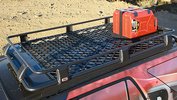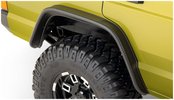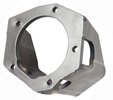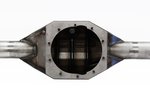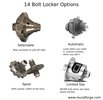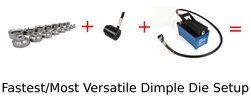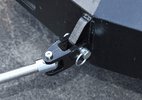6 Reasons Tow Straps with Hooks Will Kill You
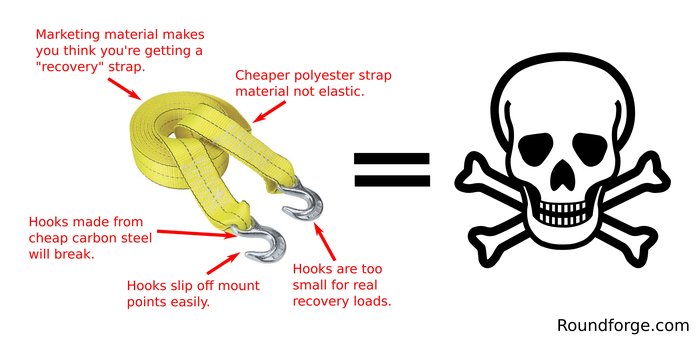
You go to your local auto parts store and see all the beautiful tow straps with hooks.
"That's what I need," you think, "I'll be the coolest guy on the block and Kayleye will finally go out with me."
NO.
You are wrong. People have died. Here's how and why.
- Why You Shouldn't Use Chain for Off Road Recovery
- Recovery Dampers for Winching and Snatching
- The Winch Recovery Kit Comparison Guide
- Recovering a mud-bogging Chevy from a mudhole
- Pulling a Jeep TJ out of a rocky hole on the trail
- Yanking a stuck vehicle back onto a road or trail
For some crazy reason we can't figure out, tow straps are still sold with hooks.
It's mind-boggling.
Tow straps with hooks + vehicles = Death
Tow straps with hooks are
probably one of the most dangerous pieces of gear you can own. If you buy one after reading this you're an idiot.
When your tow strap with hooks kills you on an off road adventure, at least people will be able to say that you died doing what you loved....
It all relates to how these straps are made, how they are used, and how we all think about straps.
1) Tow Straps are not Recovery Straps
The big problem here is that tow straps are not recovery straps, but people use tow straps like they are recovery straps anyway.
What's a tow strap?
A tow strap is for moving a
disabled vehicle, that can freely move, from one location to another
location.
That’s it.
Picture one 4x4 pulling another 4x4 down a gravel road towards a town for repairs.
A tow strap is not for:
Understand:
A tow strap is not for moving a stuck vehicle.
Tow straps should not see any jerking
forces, only a consistent application of force.
When you tow a trailer,
the trailer experiences a consistent application of force from your tow
vehicle. It should be the same with a tow strap. No slack in the strap, just steady, even tension.
2) You Think You're Getting a Recovery Strap
Most of the straps that you see for sale will say "recovery strap".
This is probably because, for manufacturers, "recovery strap" sounds fancier than "tow strap". They want you to think that you can go around savin' ladies from ditches. Most of them are not actually recovery straps.
This is true for most of the straps that you're likely to find locally.
Here's the deal:
A true recovery strap has characteristics that make it ideally suited for yanking stuck vehicles. The most important is that recovery straps have elasticity.
Recovery straps stretch.
They’re elastic like rubberbands. They are supposed to see much higher
forces than tow straps in order to yank vehicles that are stuck out of
mud, off a rock, or off a dune.
A recovery strap
is for freeing stuck vehicles.
When you use a recovery strap, there will be slack in the strap, then it will be pulled taut and stretched, then it will be slack.
When tow straps are rated, they’re rated for the consistent force
that should be applied. They don’t need to have a large safety factor
built in because they are not designed to be yanked.
Recovery straps have much higher safety factors and also are much less stressful for vehicle occupants in a recovery situation because they don't jerk you around.
3) The Wrong Strap Material
There is one main driver for why it's so easy to buy a non-stretch tow strap versus a stretchy recovery strap:
Nylon is more expensive than polyester.
Tow straps that you buy in big box stores or discount stores are usually
cheap and imported.
They are almost always made of polyester, which is
cheaper than the nylon that's used for a real recovery strap.
Polyester has a place in 4x4 recovery:
It's perfect for use as a tree saver strap or as a winch extension strap. You don't want any stretch in either.
But polyester is a terrible material for a recovery strap.
Unfortunately, it's so much cheaper than nylon that it tends to be what you find when you need to buy a strap quickly.
Poke around and you'll find that ZERO straps from well-known companies like Warn, ARB, and Bubba Rope have hooks and ALL of them are made of nylon.
4) The Hooks Are Bad
The hooks
are made of steel, but you have no idea what the quality of
that steel is.
Here's a story of a broken hook causing death.
If the tow strap you buy comes from your local autoparts chain, Walmart, Home Depot, Lowes, or any other large company, it'll be made in China and be made with Chinese steel.
Look:
Plenty of great stuff is made in China. But it seems...um...unlikely that Walmart is doing quality control on the tow strap hooks it sells.
Are they even big enough?
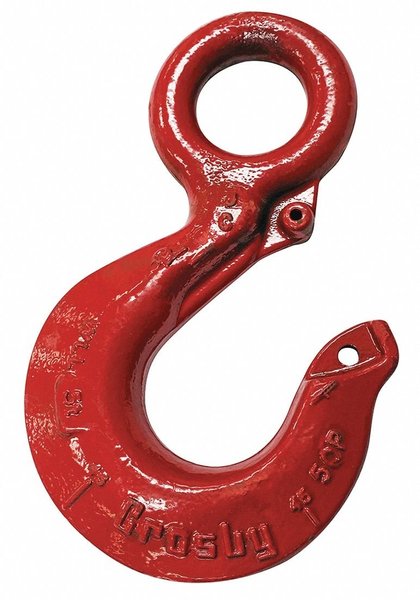
Probably won't fit your dinky tow strap!
Let's compare tow strap hooks to 3/4" shackles.
3/4" D-ring shackles are the most common shackle size used in vehicle recovery. If you buy an off road recovery kit, it'll almost always have 3/4" shackles in it.
3/4" D ring shackles have a working load limit of 4.5 tons and a safety factor of 6. That means it has a minimum breaking strength of 57,000 lbs.
That's a piece of equipment that will hold up to serious recovery operations!
Now:
Let's take a look at the eye hooks from Crosby, a well-known American rigging manufacturer.
From their catalog, if we want an eye hook with a similar working load limit, we'd be looking at the 5 ton carbon hook (you aren't getting alloy hooks on your Walmart tow strap!).
This hook weighs 8.3 lbs and is 9" long!!!
Not easy to throw in the back of the Jeep....
Do you think your tow strap with hooks that you bought at Autozone has a 5 ton working load limit?
No.
5) They Slip
You've probably imagined this happening:
A car is stuck in a ditch and you decide
to help the driver.
Your rig is heavy, the car is light, you have a strap, and you get to show off your recovery skills.
"Awesome," you think, "I am a BAMF."
When you start out, of course you’ll do it by the
book, slow and steady (unless you are dumb).
But the car won’t move and you’ll think, “Just a
little more skinny pedal.” You let a little slack in the strap and give
it some gas.
This is where things start to go wrong.
That’s because this
situation is a recovery operation, not a tow operation.
You should know that the scenario above actually happened and that the driver of the towing vehicle was killed with his four year old girl sitting next to him. Somewhere in the recovery operation the hook loosened up and when he jerked on the strap it shot through his windshield and into his head.
Most tow straps that come with hooks don't have latches. Even when a hook has a
safety latch, the latch can be deformed and malfunction.
While you’re repositioning your rig for a pull, the hook can slip to another location or simply be positioned in such a way that it slips off after it has a considerable amount of force on it. The hook then becomes a projectile that can kill or injure anyone in its path.
6) Tow Straps with Hooks Give You a False Sense of Security
People imagine that because they're using hooks their recovery setup is somehow "secure".
But cars don’t have
“recovery” points built in.
Even many 4x4s and trucks do not have recovery points that are sufficient for real recovery forces.
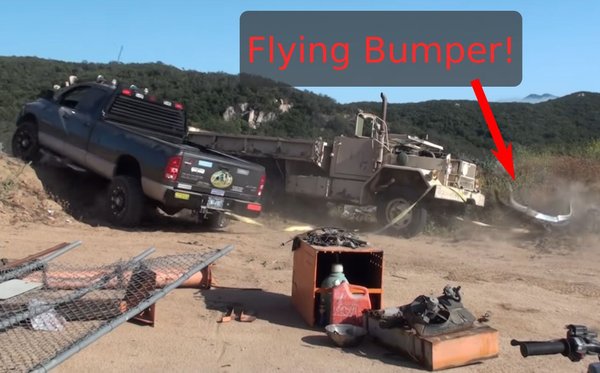
You might assume that "tow points" on your rig are strong enough, but often they are not.
They have “tow” points that are designed
for the consistent, steady force of towing. If you attach your hook to
the wrong (weak) part of the body, you could rip the hook right out of
the mount.
Again, this will send your hook rocketing through the air. Maybe towards you or a loved one.
Your recovery setup is only as strong as the weakest link. If your
mount point is weak, it will break. If the hook is weak, it will break.
If a strap is too small, it will break.
All of these will result in dangerous flying projectiles.
Stories of Tow Straps with Hooks Killing People
There are lots of stories on 4x4 forums of people that have had close
close calls, been injured, or died due to tow straps with hooks,
trailer balls shearing, strap attachment points breaking, and other equipment failures.
Here are some that made the news that only involve tow straps with hooks.
Man killed as tow hook whips into his vehicle - Colorado
Man killed by tow hook in accident on farm - Delaware
Two men killed in Iowa County tragedies identified - Iowa
Last updated: September 5, 2019
